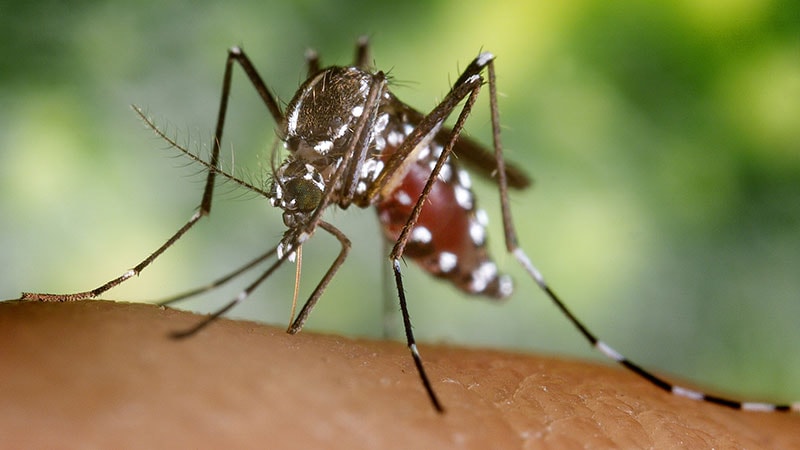Fitness
Can We Limit Arbovirus Transmission During the Olympics?

A recently published study sought to determine the number of days necessary for tiger mosquitoes in the Île-de-France region of France to transmit arboviruses. These results are particularly important as the Olympics approach.
A Risky Summer?
Between January 1 and April 19, 2024, 1679 imported cases of dengue were recorded in mainland France, which is 13 times more than last year during the same period. This increase is likely to be boosted by the Olympics, which will involve a significant mixing of populations, with additional flows of people from countries where dengue and other arboviruses are endemic. This mixing will occur during a period that encourages the development of mosquitoes.
Transmission Delays
This study, led in part by the Pasteur Institute, Paris, France, analyzed the ability of Aedes albopictus (tiger mosquito) in Île-de-France to transmit 5 arboviruses (West Nile, chikungunya, Usutu, Zika, and dengue) at a temperature of 28 °C, which is likely to obtain in this region during the Olympics. Researchers counted the number of days between the mosquito’s first infection when it bites a person carrying the virus and its transmission of this virus to another person during a new bite. The virus must multiply throughout the mosquito’s body, including in the salivary glands, which takes several days.
According to the results of this study, at a temperature of 28 °C, the incubation time needed for the viruses to reach the mosquito’s salivary glands in sufficient quantity to infect a human is 3 days for the West Nile virus, 3-7 days for the chikungunya and Usutu viruses, and 14-21 days for dengue and Zika viruses.
Why Is This Important?
This information is essential to assess the additional risk associated with the Olympics and develop appropriate control strategies. For example, as emphasized by Anna-Bella Failloux, PhD, who led this study, “If a case of dengue is detected in the Île-de-France region, we now know that insecticide treatment must take place within 21 days. These results allow for the adjustment of the timing so that the approach is optimal.”
Healthcare professionals are urged to be particularly vigilant this summer to detect cases of these arboviruses and report them to the Regional Health Agency to identify the areas to be treated with insecticides. In addition, it is recommended that anyone returning from travel and experiencing fever or body aches consult their general practitioner promptly and specify their area of origin. Fortunately, the alert and monitoring system in France is effective, notably because it benefits from the experience of the country’s overseas territories in endemic areas.
These studies focused on mosquitoes in Île-de-France, but they will soon be extended to the entire mainland, because extrinsic incubation periods vary according to local temperatures and populations of tiger mosquitoes, which are not genetically identical.
This story was translated from Univadis France, which is part of the Medscape Professional Network, using several editorial tools, including AI, as part of the process. Human editors reviewed this content before publication.


)






